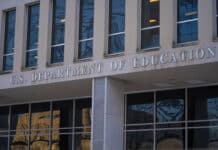MINNEAPOLIS — Changes surrounding the operation of local public school districts around the state of Minnesota have forced school boards and superintendents to take a hard look at plans to stay under budget whilst growing their district population.
A recent Star Tribune article focused on the “rising exodus” of children leaving their home districts for other schools, using St. Paul Public Schools (SPPS) as an example. The article details the challenges districts face when dealing with a fluctuating population – lack of diversity in terms of race and socioeconomic status of schools by districts and neighborhoods and loss in revenue.
However, the “rising exodus” of home districts hint to a growing problem being ignored by administrators. Parents now feel empowered by open-enrollment – meaning they’ll leave their home districts to provide their child with the best education possible.
For Kathy Gunderson, curriculum was a main factor in her decision to homeschool her children.
“They [her two sons] had perfect attendance every year, no discipline issues, and I supervised homework every night,” Gunderson told Alpha News. “Nonetheless, standard testing at year end showed neither boy had made a full year of progress in either reading or math. Yet, quarterly reports had high marks, they had no special needs, and their teachers gave me glowing feedback at conferences.”
Gunderson found her solution in homeschooling and charter schools. “All I wanted was a good basic education – reading, writing, and arithmetic – and Minneapolis Public Schools (MPS) failed my kids and many others,” Gunderson told Alpha News. “MPS gets ridiculously high funding per student but outcomes are disastrous.”
Stories like Gunderson’s are a dime a dozen. For Kendra Shipman, two of her girls had success in their home district public school, but her son did not. He fell behind his peers by the time he entered third grade, where teachers assumed he had a medical or psychological deficiency such as ADHD or bad eyesight – neither of which turned out to be true. Instead teachers chose “not to punish learning” when he did not do his homework.
“I could not believe they had nothing to reinforce that he needed to do his work before being allowed recess or the like,” Shipman told Alpha News. “Seems like kid 101 to me.”
Once she moved him to First Baptist School in Rosemount, Minnesota, Shipman saw improvement almost immediately.
For parents like Mitch Berg, he pulled his son out of SPPS because he didn’t learn in the same way as other students. SPPS administrators later diagnosed Berg’s son with “behavioral problems.”
“School is a factory. The factory is designed to turn out thousands of identical sausages,” Berg, who blogs under the handle Shot in the Dark wrote in 2007. “Each of those sausages must be identically-shaped. If any of those sausages doesn’t fall into the assigned shape, fast enough, you take the sausage off the assembly line and call it “special” and and send it the subliminal, but really overt, message that he’s an abnormal bit of sausage. And you take that little bit of sausage aside so it doesn’t gum up the assembly line for all the other bits of sausage.”
Even students are praising the differences between schools in their home district versus the one they attend now.
“I feel like I wasn’t able to reach out to my teachers about homework, quizzes, things I didn’t understand as often because of how many people were in my class,” Robert Gerszewski’s daughter told Alpha News. “I feel like here, the classes have less students so it is easier to reach out to the teachers and talk about things in class. They also do grade check-ups in advisory so they check your grades almost every day and will tell you what needs to get finished in a certain class.”
Gerszewski made the decision to switch his daughter from their home district of Shakopee to Eden Prairie telling Alpha News it was the curriculum and found public schools to be lacking in certain areas.
“It almost felt like survival of the fittest sometimes; if your child fell behind, it was almost a ‘tough luck’ situation,” Gerszewski told Alpha News referencing the size of classes. “I imagine at some point the teachers can fall behind in terms of available time for helping out in individual situations.”
Ultimately, there are unintended consequences when parents make the decision to pull the plug on their home district. As the Star Tribune pointed out, segregated schools and loss of programs are part of those consequences.
Open-enrollment is providing students and parents a quiet, but powerful voice within their districts. Parents are allowed the opportunity to tell their districts what is and what is not important to them – and if they aren’t satisfied, they’ll be happy to take their business elsewhere.
















